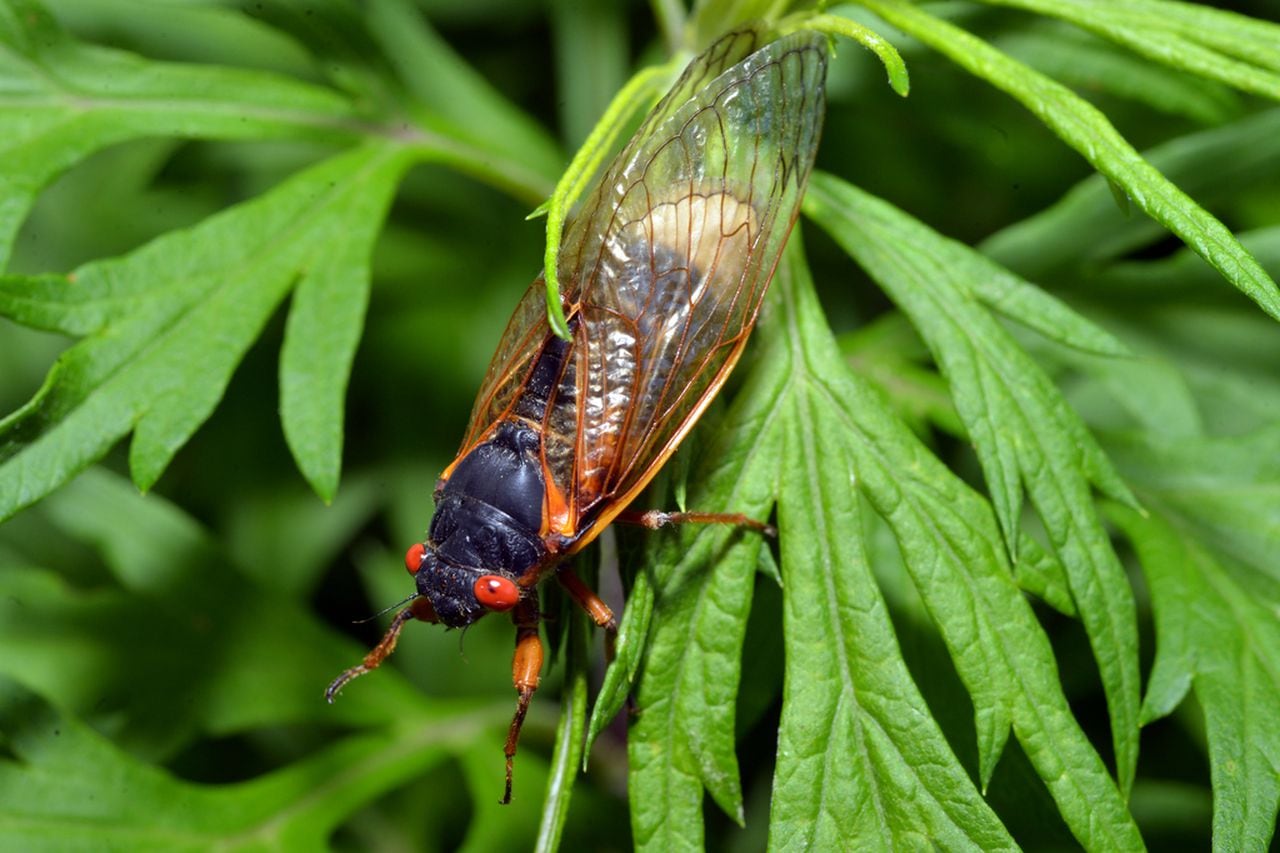This summer, some will get a chance to witness a phenomenon rarer — and probably louder — than Halley’s comet. For the first time in more than two centuries, two big groups of cicadas in the United States will emerge simultaneously from the ground.
Cicadas, often called “heat bugs,” make their presence known throughout the country every summer by “singing” their loud song. But some of these large, flying insects, only emerge from underground every so often, depending on their group, or brood.
These “periodical” cicadas bury themselves in soil, where they spend most of their lives. This summer, millions of cicadas from broods XIX (emerging every 13 years) and XIII (every 17 years) will both crawl out from underground and fly across the south and Midwest looking for a mate, according to Cicadamania, a website dedicated to tracking the insects.
The last time these two broods popped out of the ground at the same time was in 1803, Cicadamania reported – when the U.S. bought the Louisiana Territory from France.
“You cannot possibly be unaware that periodical cicadas are out, because they’re out by the millions and millions, and they’re noisy, charismatic, active insects that are just everywhere,” John R. Cooley, an entomologist who studies cicadas at the University of Connecticut, told MassLive.
“When you got them, you know it. And that’s what you can expect to see. That’s what any normal emergence looks like,” he continued.
What folks will see are a whole lot of bugs that all look the same, as the ones that come out every decade-plus look the same as the ones that come out every year, Cooley said.
“It’s not going to be obvious why this year is so special unless you take the historical perspective and realize that you’ve got these two different life cycles coming into contact,” he explained.
New Englanders who want to see the insects up close and personal — at least this year — will have to head to other parts of the country, including parts of Illinois, Alabama, Tennessee and Virginia. Cicadamania’s website offers when and where they are most likely to be seen.
Researchers are still exploring why some cicadas emerge periodically. One common theory is that their infrequent appearance helps them avoid predators and prevents enemies from synchronizing on their life cycle.
But, Cooley said this theory is flawed since all cicadas have predators, but fewer than 10 species are periodical. Some of the cicada’s natural enemies include birds, moles and Cicada killer wasps, according to the University of California Integrated Pest Management Program.
Another theory suggests the last ice age forced cicadas to evolve to have longer periodical life cycles. But, that theory is limited as many cicadas live near glacial areas – few of which are periodical, according to nature.com.
“Science isn’t all about having the explanations,” Cooley said. “We just test hypotheses and there are a lot of hypotheses as to why these cicadas are the way they are, but none really stand up so far.”

Well into the cicada cycle Wolfe’s Pond Park is inundated with the red-eyed creatures Wednesday, June 12, 2013.(Staten Island Advance/ Bill Lyons) Staten Island AdvanceStaten Island Advance
After emerging from the soil, cicadas spend the rest of their lives aboveground focused on one thing: sex.
In the short weeks they have left on Earth, cicadas fly around looking to reproduce with one another. Male cicadas make a high-pitched buzzing sound to attract female cicadas. Once a female cicada is attracted, they mate.
The female cicada then lays her eggs on the branches of trees. Six to 10 weeks later, the eggs hatch and the infants — or nymphs — fall to the ground, burying themselves in the soil, according to National Geographic.
A few weeks after the mating period, the cicadas die.
Unless New England residents are willing to drive down to the south or midwest this summer, they won’t get to witness the great cicada co-emergence of 2024. But, in the summer of 2025, Brood XIV will emerge across the Northeast. The last time this brood came out was in 2008, Cicadamania reported. Their reappearance will give New Englanders a chance to witness another historical emergence.
Brood XIV was the group European colonists first discovered in the late 15th century and mistook as a “biblical plague,” according to Cooley.
“If you haven’t experienced one of these things, I do recommend it,” Cooley said.
When cicadas emerge, they usually fill the air with their loud, buzzing sound. They also shed their skin, leaving millions of molted cicada shells on the ground as a souvenir of sorts.
“If you don’t get out to see it this year, definitely go out to Cape Cod next summer and see it there,” Cooley added. “There is nothing else like it on the planet.”






